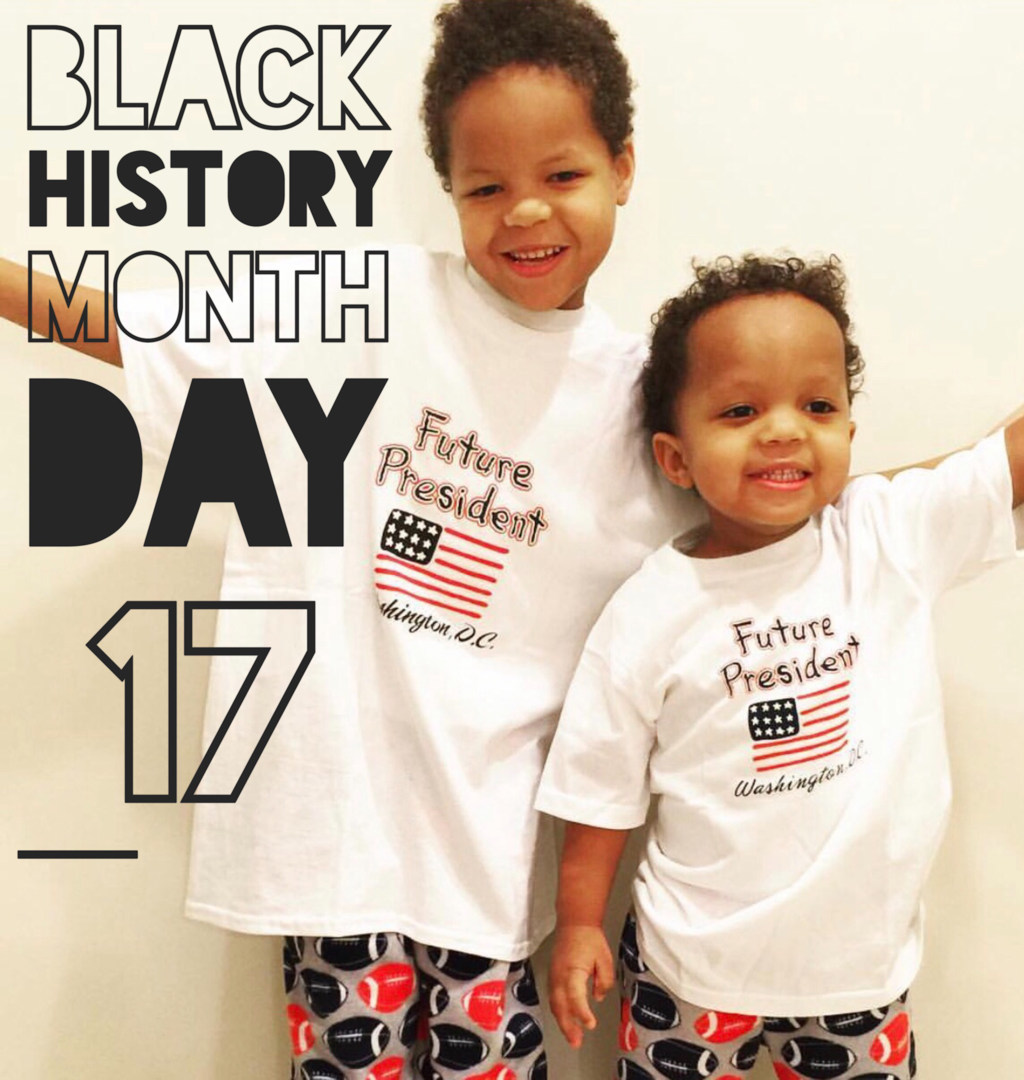|
From the Emancipation Proclamation to the election of the first African-American president in American history, here is a glimpse of what I consider to be the top 10 Presidents in our history who have supported the progress of black people in America.
While my little boys, Mr. President Number One and Mr. President Number Two, are learning about George Washington and the founding fathers at school, I am taking it upon myself to incorporate lessons about the leaders of our great nation, and the laws they implemented, or attempt to implement, in the freeing of slaves, and eventually, the legal equality of African-Americans. The U.S. Presidents listed below, in order of succession, are those I believe have had the greatest degree of African-American influence in our nation’s history. So here we go: John Quincy Adams: President Adams was the sixth President of the United States, and the son of the second. His views on slavery evolved over time, and it would be after his presidency that he would become a well-known abolitionist. While in Congress, he demanded to hear petitions against slavery, when laws regulated against them. President Adams won the freedom of the Africans on the famous, Spanish slave ship, La Amistad. President Adams never billed for his service. Abraham Lincoln: President Lincoln was born into a racist family in Illinois. Despite his upbringing and early years defending the laws of slavery, he eventually grew a very transparent opposition to slavery, and would eventually be assassinated because of his outward attempt to support African-Americans. Lincoln, also known as the Great Emancipator, would take a while to become the anti-slavery man who believed in black inferiority, to become Lincoln the abolitionist who could openly advocate for certain rights of citizenship for black people. Although initially implemented as a war necessity, President Lincoln would sign the Emancipation Proclamation, freeing the majority of the four-million enslaved African-Americans during the Civil War. Although loopholes would allow for the continuation of slavery, President Lincoln would also pass the 13th Amendment, legally abolishing slavery in the United States. Ulysses S. Grant: Often considered to be one of the greatest civil-rights presidents in American history, President Grant was elected to presidential office twice, even though he stood up for the rights of African-Americans to live in freedom. He championed for the passage of the 15th Amendment, allowing African-American men the right to vote. He would call the 15th Amendment, “the greatest change in American history since the Declaration of Independence.” He also sent troops in to southern states where white-supremacists groups were attacking and killing African-Americans, namely the Klu Klux Klan. Franklin D. Roosevelt: Although President Roosevelt (FDR) was not a crusader for African-American rights, and is often critiqued for “The New Deal,” he signed a pair of executive orders (Executive Orders 8802 and 9066), that set the stage for generations of economic opportunity for African-Americans, by barring discrimination in hiring by federal agencies and contractors. As a result of one of these orders, millions of black people, who were almost unable to find employment previously, would receive better jobs, and better pay. FDR’s Wife, Eleanor Roosevelt, is considered to be the first First Lady to champion for African-American rights. She is often remembered for moving famous African-American opera singer, Marian Anderson’s, performance at the Lincoln Memorial after she was prohibited from performing at Constitution Hall because of her race. My children have also taken the name of the Roosevelt’s — hence why we call them, “The Presidents.” Harry Truman: President Truman was the first president since Ulysses S. Grant to directly address civil rights for African-Americans. Although he was born and raised in the segregated south, his service in the military broadened his perspective on African-Americans. When he took office, racial tensions, lynchings, and other violent crimes against blacks were at an all-time high. President Truman was the first President to directly address the National Association for the Advancement of Colored People (NAACP). And after seeing the brutal treatment African-American soldiers received after returning home from World War II, he decided enough was enough. He would eventually attempt to desegregate the military, and implement civil-rights acts to ensure fair and equal treatment for African-Americans. Dwight Eisenhower: President Eisenhower was a Texas-born war hero. President Eisenhower, because of his privileged upbringing, had little knowledge or experiences with black people. He even believed, initially, that the federal government should never interfere with old, American racial customs. During his presidency, he would have a change of heart, desegregating the nation’s Capitol, Washington D.C., and following through on President Truman’s promise to desegregate the military. He also appointed Governor Earl Warren as Chief Justice of the Supreme Court, which would be instrumental in the outcome of future justice, Thurgood Marshall’s, case, Brown vs. The Board of Education. The court’s ruling in Marshall’s favor would desegregate schools across the country. Rosa Park’s famous Montgomery protest, along with the brutal murder of 14-year-old Emmett Till three months earlier, challenged President Eisenhower's desire to aggressively oversee the nation’s progress on race. John F. Kennedy: President Kennedy (JFK), who was elected by a majority black vote, made historic African-American appointments to his cabinet — most notably, appointing Thurgood Marshall to the Second Circuit Court of Appeals in New York. Although he would eventually join the black cause, for the first two years of his term, he ignored the call to join African-American leaders, namely Martin Luther King, Jr. (MLK) in the fight for equal rights for black people. JFK supported minority voter registration drives, and deployed troops to protect protestors. On the evening of June 11, 1963, JFK gave a televised address announcing that he would send comprehensive civil rights legislation to Congress that would include provisions for access to public facilities, voting rights, and technical and monetary support for school desegregation. Unfortunately, he was assassinated just five months later, and legislation had not yet been passed. Lyndon B. Johnson: President Johnson, true to his convictions, fulfilled the promises made by JFK before his assassination. Although many believed President Johnson had conflicts with his own ideals of racism, he would pass the Civil Rights Act of 1964, and the 1965 Voting Rights Act. The Civil Rights Act made it possible for President Johnson to completely abolish Jim Crow laws, and the Voting Rights Act made the U.S. government accountable to its black people and the promise of a true democracy. President Johnson also lifted racist immigration restrictions designed to preserve a white majority in the U.S. Although the Fair Housing Act never fulfilled its promise to end residential segregation, it was another part of a political effort to live up to the ideals of a fair and just America. His War On Poverty also produced controversial programs to lift African-Americans out of poverty: Head Start, Medicaid, and Medicare. He would also be responsible for the appointment of the first black Supreme Court Justice, Thurgood Marshall. Bill Clinton: Although President Clinton has a complicated relationship with black American (due in part to his Three Strikes Law, part of the infamous 1994 Crime Bill), he has still been dubbed the First Black President. Because he was from the South, and even played the saxophone on the Arsenio Hall Show (quite eloquently, might I add), he was extremely popular amongst African-Americans. Crime and minority unemployment rates dropped to an all-time low during his presidency, and the Family Medical Leave Act of 1993 provided job security for many African-Americans. Also during his presidency, a surprisingly large number of African-Americans would go to college. Barack Obama: President Obama, as you already know, was the FIRST BLACK PRESIDENT OF THE UNITED STATES. The sheer fact that he was elected, is a true inspiration for generations of black children to come -- affirming that fact that if you dream it, you can achieve it. Many black people regarded his victory as a personal triumph, and it marked a significant step in the "long road to freedom" for many. Although the economy struggled to recover during President Obama's presidency, the Affordable Care Act, automobile bail-out, and education reform elevated millions of African-Americans. The My Brothers Keeper Initiative also focused on improving the lives of young African-American males. One personal statement made by President Obama that really sealed the deal for me (as the mother of black boys), was during his speech following the killing of Trayvon Martin: "If I had a son, he'd look like Trayvon." Although criticized immensely for this remark, I appreciate his transparency, and his audaciousness to address the nation, emphasizing the fact that Trayvon could have been him — a black boy with a hoodie on 35 years ago. Evaluating the presidency of some of these great men is no easy task. But I hope you learned a little something from my list. Happy Presidents Day, and Happy Black History Month!
3 Comments
Angela Landgrebe-Harmon
2/18/2019 07:01:08 pm
Very well thought out.... and I never knew #6 was the son of #2. Nice. It always astonishes me how far ( yet not far enough) America has come. (Granted, this Yahoo we have now is doing is no favors.) But still in a life time we have went from African Americans inability to vote to having a black president... and let's be honest had Russia not been involved and more Democrats got out and voted Hillary would have been our #45. And all of this ridiculousness going on now with FBI doing a counterintelligence on our president would never be. I also know that many Americans are downright appalled at what is going on... I truthfully believe he is going to go down... lastly what is it you are saying about your sons taking the Roosevelt name? I am lost.
Reply
Anonymous
2/18/2019 07:21:18 pm
Hi Angela!
Reply
Michael
2/19/2019 02:52:42 pm
Thank you for this thoughtful summary.
Reply
Leave a Reply. |
Author
|


 RSS Feed
RSS Feed